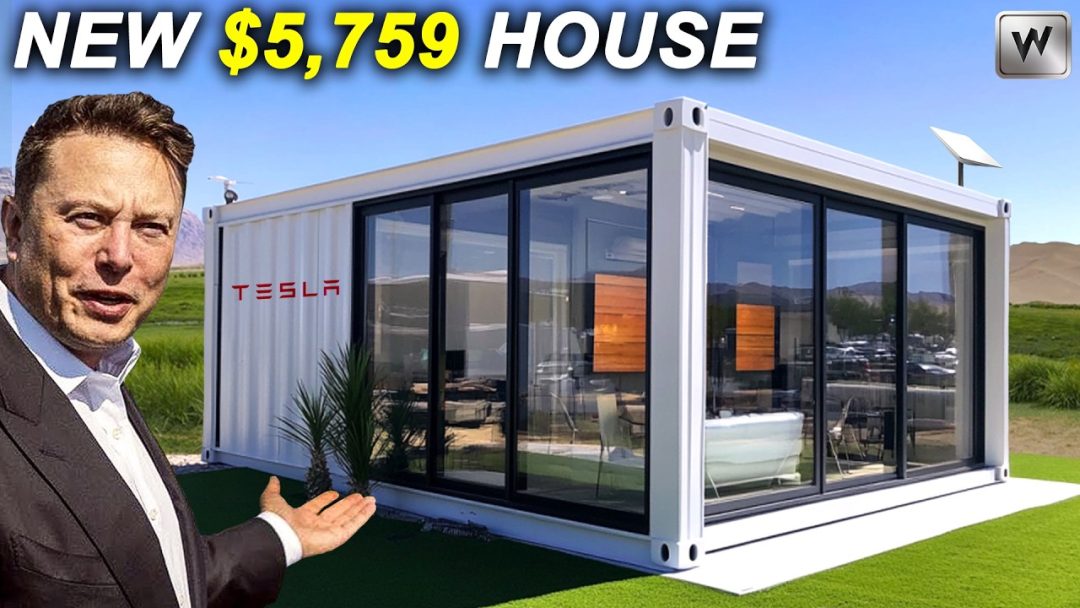Elon Musk has once again disrupted the status quo, this time not with electric vehicles but with the unveiling of the 2026 Tesla Tiny House, priced at an astonishingly low $5,759. This innovative housing solution promises to redefine homeownership, offering a self-sufficient living space equipped with cutting-edge technology that could revolutionize the housing industry.
 The Tesla Tiny House is not merely a compact dwelling; it features an advanced, self-contained water and sewage system that could dramatically alter sustainability practices. Traditional homes consume 80 to 100 gallons of water daily, but Tesla’s closed-loop system reduces this to just 5 gallons per person. By recycling 90% of water, the tiny house offers an estimated $500 annual savings on water bills. Its sewage processing unit, inspired by NASA technology, composts waste efficiently, eliminating the need for costly septic systems and saving homeowners thousands in installation and maintenance costs.
The Tesla Tiny House is not merely a compact dwelling; it features an advanced, self-contained water and sewage system that could dramatically alter sustainability practices. Traditional homes consume 80 to 100 gallons of water daily, but Tesla’s closed-loop system reduces this to just 5 gallons per person. By recycling 90% of water, the tiny house offers an estimated $500 annual savings on water bills. Its sewage processing unit, inspired by NASA technology, composts waste efficiently, eliminating the need for costly septic systems and saving homeowners thousands in installation and maintenance costs.
Moreover, the modular design of the tiny house allows for easy repairs, turning what is often a stressful and expensive process into a straightforward task. Each component can be replaced in minutes with basic tools, significantly reducing repair costs and downtime. Tesla’s commitment to customer service extends to a robust support network, ensuring that help is always available, even in remote areas.
The implications of this innovation reach far beyond individual homeowners. With 15 U.S. cities facing housing shortages, Tesla’s tiny houses could provide affordable solutions while reducing infrastructure costs by 30%. In disaster scenarios, these homes can be deployed rapidly, offering immediate shelter without reliance on existing utilities—an essential feature in times of crisis.
Tesla’s vision doesn’t stop at housing; it aims to reshape industries from education to corporate environments. By providing affordable living solutions for students and flexible workspaces for companies, the tiny house could save billions while enhancing quality of life.
As we stand on the brink of a new era in housing, the Tesla Tiny House emerges not just as a product but as a potential lifeline for many, addressing critical issues of sustainability, affordability, and resilience. If Musk’s vision comes to fruition, the implications for society could be profound, altering how we think about home, work, and even survival in the face of global challenges.






